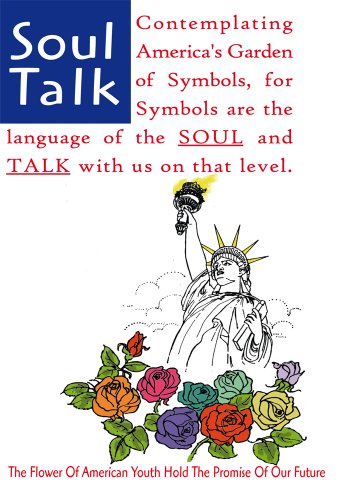By Valentina Tirloni (éd.)
A PROPOS DE L'AUTEUR
Valentina Tirloni, philosophe et juriste, est actuellement post-doctorante à l’Institut de recherches philosophiques de Lyon (Université Jean Moulin Lyon 3), dont elle est aussi coordinatrice scientifique depuis 2007. Ses travaux de recherche portent sur l. a. philosophie politique, los angeles philosophie de l. a. process et les imaginaires de l. a. technologie.
Consciousness and Fundamental Reality (Philosophy of Mind by Philip Goff
By Philip Goff
The moment half the booklet explores and defends a lately rediscovered idea of basic realityor might be particularly a grouping of such theoriesknown as 'Russellian monism.' Russellian monists draw suggestion from a few theses defended by way of Bertrand Russell in The research of Matter in 1927. Russell argued that physics, for all its virtues, supplies us a appreciably incomplete photograph of the realm. It tells us in basic terms concerning the extrinsic, mathematical beneficial properties of fabric entities, and leaves us at midnight approximately their intrinsic nature, approximately how they're in and of themselves. Following Russell, Russellian monists believe that it's this 'hidden' intrinsic nature of subject that explains human and animal consciousness.
Some Russellian monists undertake panpsychism, the view that the intrinsic natures of easy fabric entities contain awareness; others carry that easy fabric entities are proto-conscious instead of wakeful. in the course of the moment half the booklet a variety of varieties of Russellian monism are surveyed, and the foremost demanding situations dealing with it are mentioned. The penultimate bankruptcy defends a cosmopsychist kind of Russellian monism, in line with which all evidence are grounded in evidence concerning the wakeful universe.
Invisible Hands: Self-Organization and the Eighteenth by Jonathan Sheehan,Dror Wahrman
By Jonathan Sheehan,Dror Wahrman
In Invisible Hands, Jonathan Sheehan and Dror Wahrman hint the numerous appearances of the language of self-organization within the eighteenth-century West. throughout an array of domain names, together with faith, society, philosophy, technology, politics, financial system, and legislation, they exhibit how and why this fashion of pondering got here into the general public view, then grew in prominence and arrived on the threshold of the 19th century in flexible, multifarious, and infrequently staggering kinds. supplying a brand new synthesis of highbrow and cultural advancements, Invisible Hands is a landmark contribution to the heritage of the Enlightenment and eighteenth-century culture.
Of Time and Lamentation by Professor Raymond Tallis
By Professor Raymond Tallis
Soul Talk:Contemplating America's Garden of Symbols by Robert E. A. Daley

By Robert E. A. Daley
Life, Death, and Meaning: Key Philosophical Readings on the by David Benatar,Margaret A. Boden,Peter Caldwell,Fred
By David Benatar,Margaret A. Boden,Peter Caldwell,Fred Feldman,John Martin Fischer,Richard Hare,David Hume,W.D Joske,Immanuel Kant,Frederick Kaufman,James Lenman,John Leslie,Steven Luper,Michaelis Michael,Thomas Nagel,Robert Nozick,ChristineOverall,Derek Par
Metafísica (Albatros) (Spanish Edition) by Eudaldo Forment
By Eudaldo Forment
Esencia del Ser (Spanish Edition) by Elsa Bianco
By Elsa Bianco
Letters to No one in Particular: A Discussion and by Charles Saunders
By Charles Saunders
This pamphlet is written for the clever and curious reader who acknowledges that we as people are designated and never akin to the other creatures on the earth. Spinoza special our area of expertise and extra defined our mind's skill to attach us with the "Whole of Nature".
Without any outward the help of a few divinity now we have been the architects of all of our achievements.
We want now to simply accept accountability for our previous and to proceed to form the longer term for all of these who've worked prior to us and in case you will follow.
Using Spinoza's recommendations we'll element the technique for spotting the facility resident within the brain and jointly paintings to maneuver this human exercise ahead into the future.
It wiil require a few attempt to strive against ourselves clear of the present greatly held misconceptions and the ideals that dominate either technology and all faith: "That human notion is innately and inherently flawed".
Please be happy to hitch us within the tricky activity that awaits. it is going to require the efforts of many minds to alter those faulty conventions which at the moment carry sway.
The Problem of Objectivity in Gadamer's Hermeneutics in by Morten S. Thaning
By Morten S. Thaning
tions that would be of curiosity to a large audience.
Dr. Steven Crowell, Rice college, Houston (USA)
Morten Thaning’s booklet is a vital contribution to the discourse of philosophical hermeneutics. Thaning commonly discusses a subject, which contemporary debates have touched upon, yet which in past times has no longer been the subject material of focused scholarly paintings: the relation among Gadamer’s hermeneutics and McDowell’s empiricism. With Thaning’s interpretation Gadamer’ paintings could be learn anew as in regards to the challenge of hermeneutical objectivity.
Prof. Dr. Günter Figal, college of Freiburg (Germany)